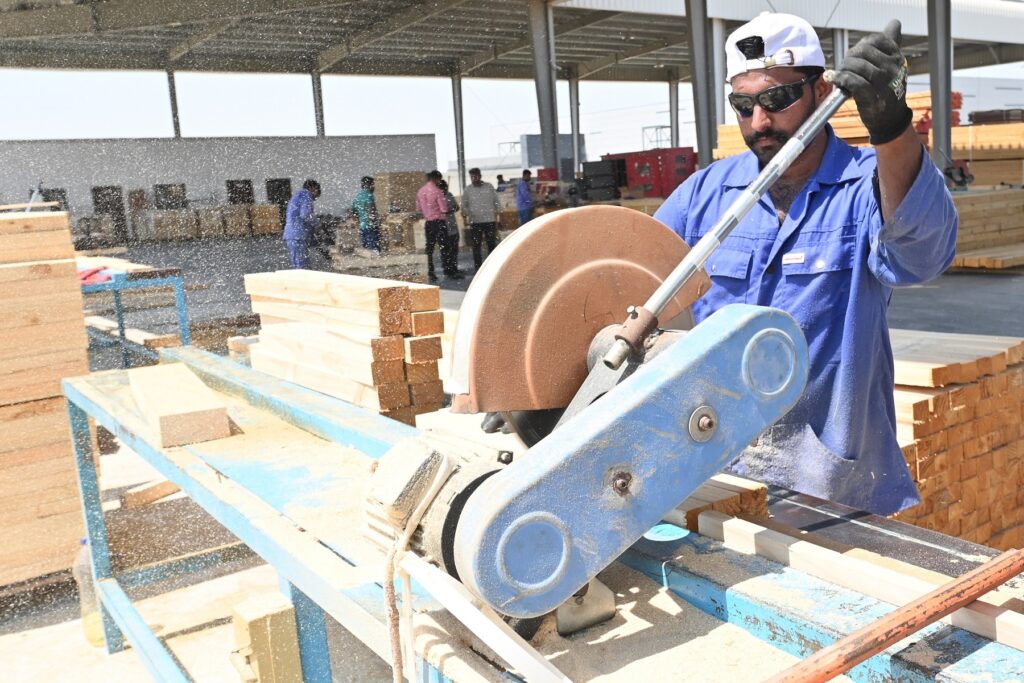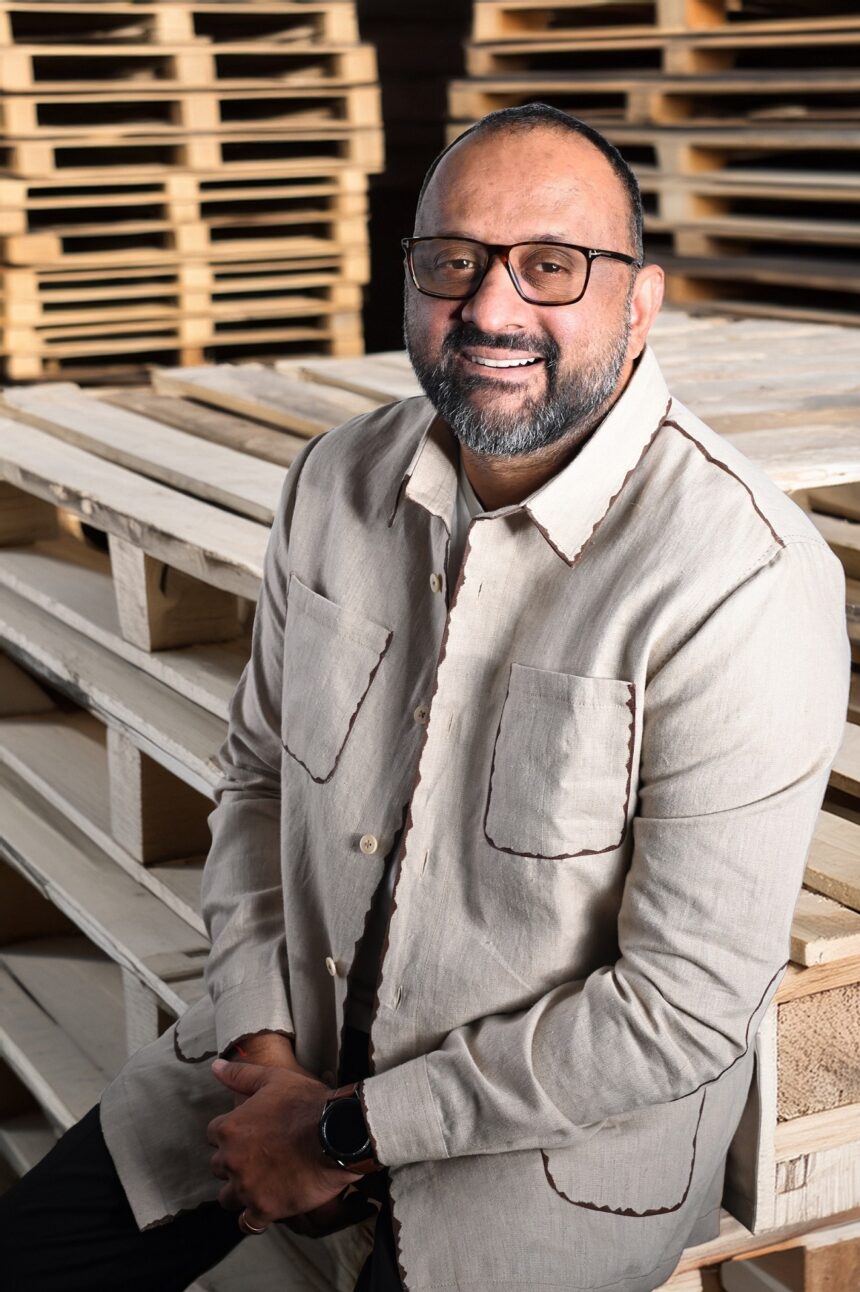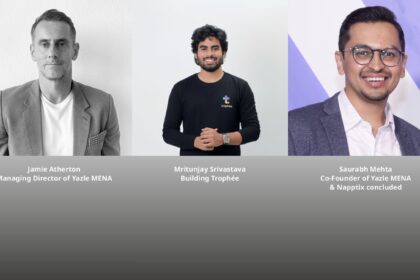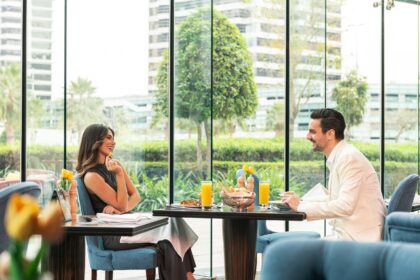October, Dubai: Al Ostad Pallet Factory’s brand-new 8,000-square-metre facility in Dubai Industrial City (DIC), isn’t simply a business expansion, it’s a bold statement about the future of manufacturing in the UAE.
For Managing Director Alex George, the move reflects both customer demand and the company’s determination to lead from the front, in an industry often seen as traditional.
“Since 2024, we’ve been seeing a rise in enquiries for bespoke pallets,” Alex explains. “The hardest part was finding a strategic location, and DIC offered the perfect hub. It allows us to serve clients in Abu Dhabi more effectively while continuing to support our long-term Dubai customers.”
A smarter, more efficient facility
The new factory is designed with efficiency at the core. Unlike the company’s earlier premises, where machines had to be squeezed into available space, this site has been carefully laid out to allow for seamless production flow. Next-generation lighting has also been installed to boost productivity during night shifts, ensuring around-the-clock output.
Alex is especially proud of how the factory has been future proofed – built to grow with the times: “We’ve set up the production much better this time. It’s a facility that allows us to adapt quickly and integrate new technologies as they come online.”
Jobs, technology and training
The expansion inevitably brings questions about employment. While automation plays an increasingly important role, Al Ostad is not losing sight of human expertise.
The company is working with technology consultants to identify how AI and robotics can be deployed across both manufacturing and administrative processes, but Alex stresses that testing and fine-tuning remain critical.
“Automation is something that requires a lot of testing because you can’t predict every scenario,” he says. “We’ve had cases where systems failed due to factors we didn’t account for. So yes, automation is coming – but we’re implementing it carefully, alongside our people.”
The tech-savvy business leader also mentioned that a recent foray into trialling robotic arms to build the pallets revealed an interesting insight – the machines presently available can’t do the work as quickly as humans.
Beyond business, Alex is deeply committed to the people behind the pallets. He has fostered a workplace culture built on empowerment, skills training, and continuous improvement, ensuring his 50-strong team thrives alongside the company. His philosophy is simple: invest in people and innovation, and the business will flourish.
On-site training is firmly on the agenda. Plans are being enacted to upskill staff and ensure the workforce grows alongside technology, a balance Alex believes will help define the company’s success.

Innovation and sustainability
The new site is more than just a production floor. Innovation underpins all of Al Ostad’s ever-growing operations, with constant reviews of processes to uncover new efficiencies.
The company is also exploring how to repurpose its production waste into sustainable energy sources, while continuing its existing practice of supplying wood by-products to livestock farms and stables.
Waste management is already a cornerstone of the firm’s sustainability strategy. “A lot of our waste is being reused in practical ways,” Alex notes. “We’re not just disposing of it, we’re making sure it contributes value elsewhere.”
Aligned with the nation’s vision
The UAE’s industrialisation push provides a powerful backdrop for Al Ostad’s growth.
Alex sees the company as an essential part of the country’s manufacturing ecosystem: “Our business complements the wider manufacturing sector because finished goods need reliable, high-quality pallets to move through the supply chain. Our expansion reflects the sector’s growth – and supports it.”
The Make it in the Emirates initiative is central to this vision. As Alex puts it, “We’re an integral part of any manufacturer’s supply chain, so it’s exciting to know that we play a real role in the UAE’s industrial future.”
The company is also building on its sense of community responsibility, with plans to provide free packing materials to aid agencies. This initiative supports both humanitarian causes and government-led efforts to respond swiftly to regional needs.
Looking ahead
For Alex, the new factory is both a milestone and a launchpad. Al Ostad is intent on becoming “best in class” for logistics and packaging solutions, aiming for the number one position regionally. Stable supply chains, secured through joint ventures and acquisitions, are already giving the company a competitive advantage in an industry vulnerable to disruptions.
“We’re on track,” Alex says with confidence. “This expansion is about being ready for the future – a future where technology, sustainability, and supply chain resilience define the leaders in manufacturing. We want to be at the forefront of that shift.”












